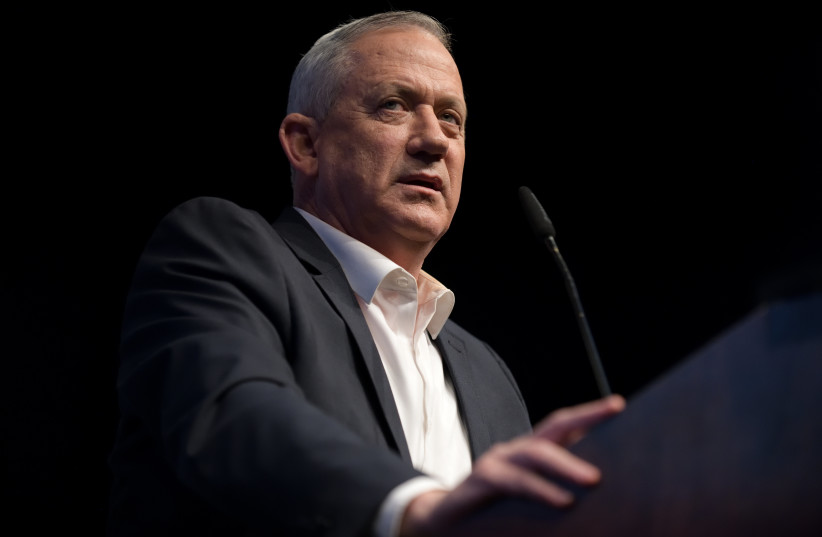Dozens gathered at Kibbutz Dafna in Galilee on Wednesday night to commemorate the 25th anniversary of the deadliest accident in the history of the IDF, in which 73 soldiers were killed when two helicopters collided while en route to southern Lebanon.
Chief of Staff Lt.-Gen. Aviv Kohavi, the families of the victims and various officials were in attendance. President Isaac Herzog and Defense Minister Benny Gantz gave pre-recorded speeches to the audience due to the weather and corona.
On February 4, 1997, two Israel Air Force Sikorsky CH-53 “Yasur” helicopters carrying IDF troops to the Beaufort Castle and “Pumpkin” military outpost in the security zone in southern Lebanon collided in midair killing everyone on board.
The troops included those who served in the Nahal and Golani infantry brigades as well as Armored Corps and other units active in southern Lebanon. They came from all over the country and most were in their late teens or early 20s.
One of the helicopters crashed landed in Sha’ar Yashuv, a moshav used as a Galilee vacation resort. The other Yasur fell in an open field near Kibbutz Dafna, where a memorial now stands for the victims, with 73 boulders, each with the name of one of the fallen surrounding a small pool.

To this day, despite a government commission of inquiry, the military has yet to give a definite reason as to why the two helicopters crashed.
Referring to the two recent accidents that claimed the lives of two Israel Air Force pilots and two officers of the elite Egoz Unit, Chief of Staff Kohavi said that the military is currently investigating the events “in-depth” to understand what occurred.
“An excellent organization is not without error, but an excellent organization investigates them thoroughly, leaves no stone unturned, and gets better.”
Kohavi said of the crash: “Seventy-three soldiers took off, 73 private worlds, but in the belly of the helicopter there was also one common and important world: a world of friendship, solidarity, and unity of purpose. They fell to the ground, their lives were cut short, but the principle of unity has been preserved.”
The IDF, which is operating simultaneously on six different fronts, “will continue to operate on all fronts. The IDF will continue to protect and ensure life, and unfortunately, from time to time is forced to do so at the cost of life.”
Gantz said that it is Israel’s “moral duty to investigate and to learn the lessons without any assumptions” after every accident in the military. “The helicopter disaster is one of the greatest disasters that happened to the IDF, and it is also proof that the IDF knows how to investigate in-depth, strengthen its injured soldiers, and continue to fulfill its operational missions.”
Referring to the recent accidents that claimed the lives of two Israel Air Force pilots and two officers of the elite Egoz Unit, Gantz said the military “is now fulfilling our threefold responsibility: investigating and learning lessons without blinking and without doing anyone any favors, as is our ethical and organizational duty; to return the teams and the units to their operations and their operational routines; and to accompany the families of the bereaved, who are dear to our hearts, and those who are injured in body and spirit.”
Touching on the current situation in northern Israel, Gantz said Israel will continue to operate along the frontier “as much as necessary.”
“Seventy-three commanders and soldiers fell on their way across the northern border, a place that still draws our gaze today, where we are operating and where we will continue to operate as much as necessary in order to preserve the security of Israel,” he said. “No less than the path and circumstances of their deaths, it is important that we remember the path and circumstances of their lives – a life of giving, of sacrifice, of responsibility and of caring for the fate of the State of Israel.”
To the families, Herzog said there “is no Israeli who is old enough not to remember where he was and what he was doing when he heard the tragic news on that damn, cold evening of February 4, 25 years ago, when the sky fell. It was the evening when the phrase ‘helicopter disaster’ was engraved on our national memory. An entire country was a partner in the heavy mourning. The shock and pain touched each and every one of us. Seventy-three soldiers, pilots and air crew members killed on their way to operational activities in Lebanon, in the heaviest air disaster the IDF has ever known.”
Onboard, Herzog said, were “73 worlds” who were from the cities, towns, religious and secular, new immigrants, Jews, Druze and Muslims. Together they went out on their mission, together they sat, shoulder to shoulder, in the Yasur helicopters, together they dived to their deaths.”
The disaster, he said, made the parents of the fallen soldiers “one family: the helicopter disaster family, a family united in bonds of deep pain and great mental strength. I know and cherish the tremendous power that lies within all of you. Your grip on life is a source of inspiration to us all.”
